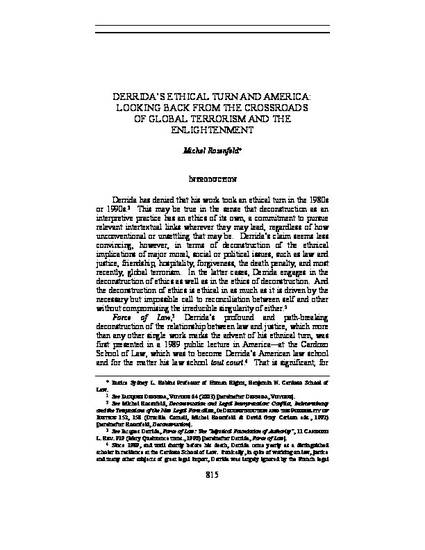
Derrida has denied that he has taken an ethical turn in the 80's and 90's. This article argues, however, that Derrida's deconstruction of the ethical implications of major moral, social or political issues, such as law and justice, friendship, hospitality, forgiveness, the death penalty and most recently global terrorism, does result in an ethical turn. This turn leads Derrida to articulate an ethics of difference which focuses on diversity and the other, and America as compared to Europe stands for greater diversity and looms as Derrida's and Europe's "other." In contrast to Derrida's America is Habermas's Europe, his Kantian ethics of identity and his clear place in modernism and the project of the Enlightenment. Many, including Habermas, have accused Derrida of having repudiated the legacy of the Enlightenment - a serious charge which would make Derrida's unequivocal condemnation of global terrorism appear as theoretically unfounded. Derrida has rejected this charge and claimed to be a true heir of the Enlightenment taken in its full historical dimension replete with internal contradictions. Moreover, Derrida's ethical assessment of global terrorism lead him to turn away from America and to return for good shortly before his death to Europe. The article examines Derrida's claim, traces his intellectual return to Europe, and assesses how his ethics of difference fares as compared to an ethics of identity in dealing persuasively with the ethical issues raised by global terrorism.
- Jacques Derrida,
- enlightenment
Available at: http://works.bepress.com/michel-rosenfeld/33/
